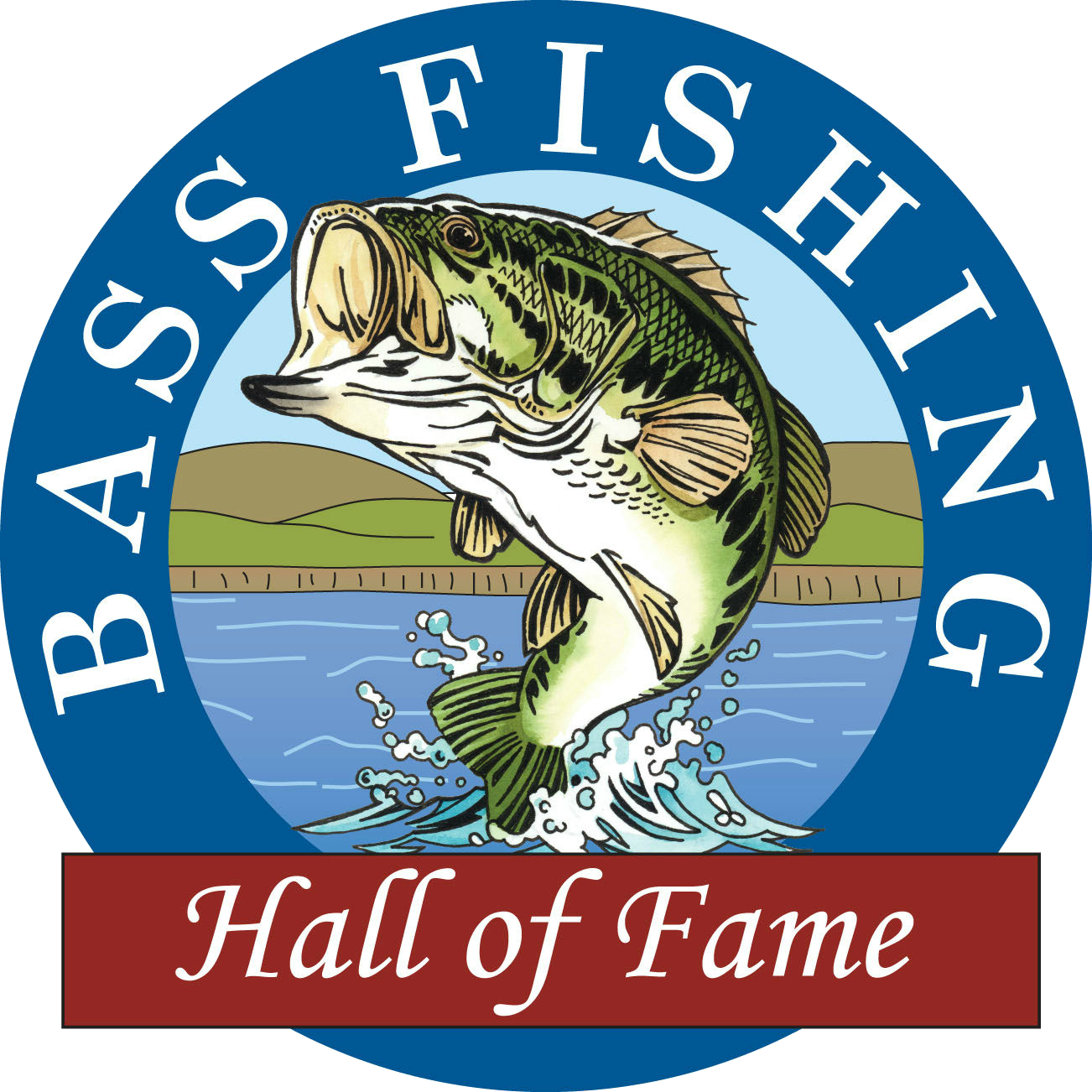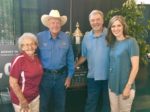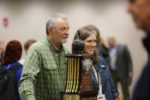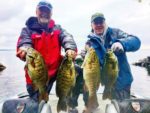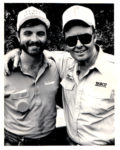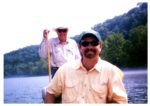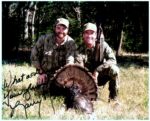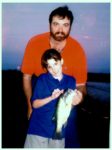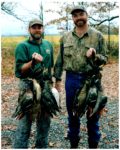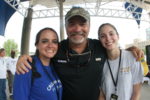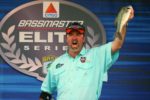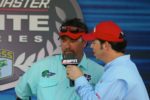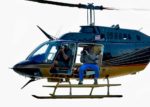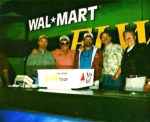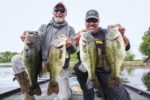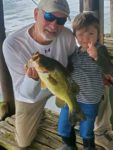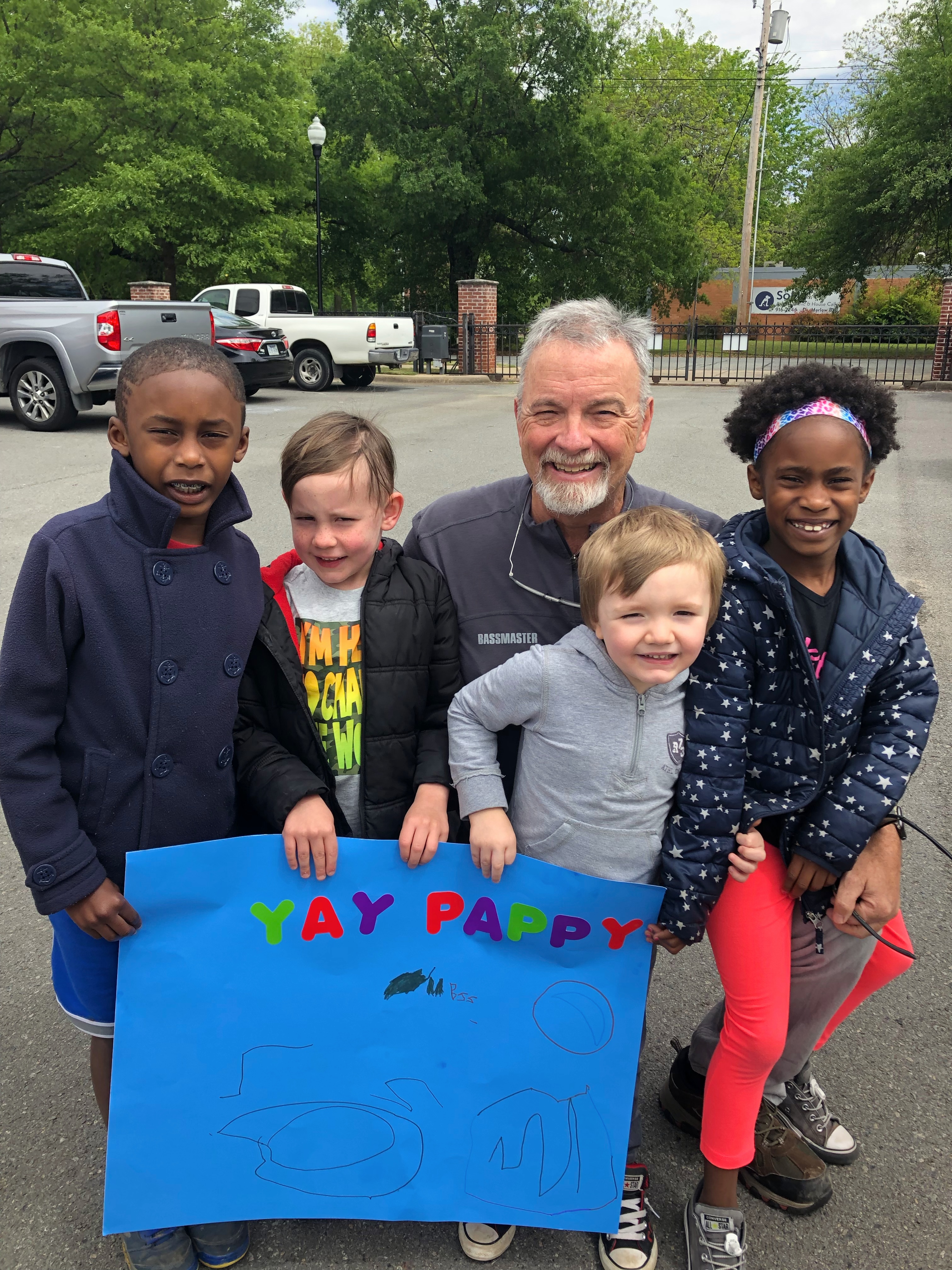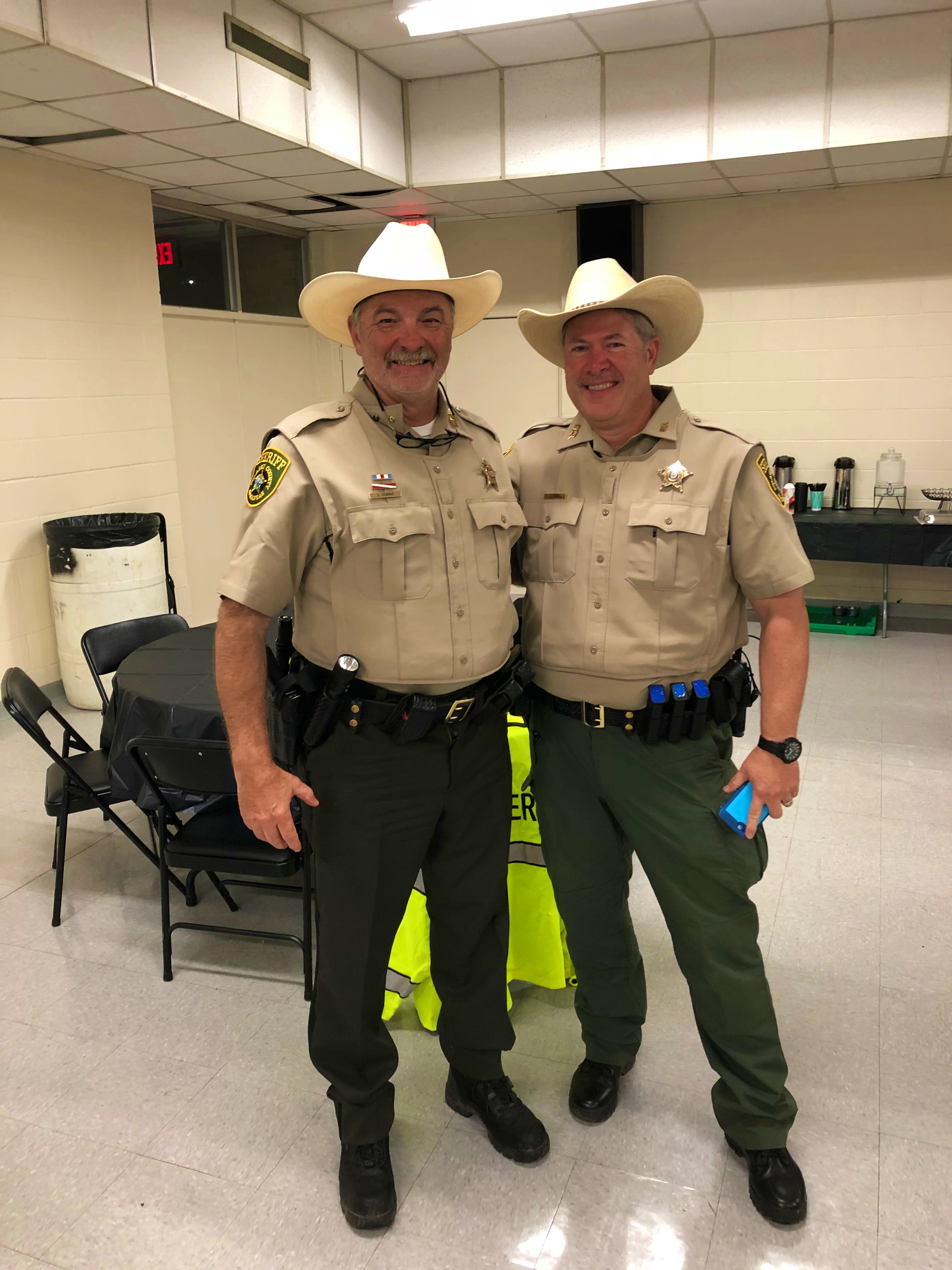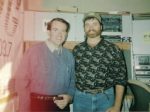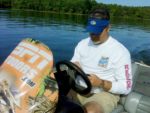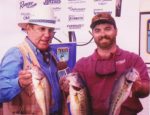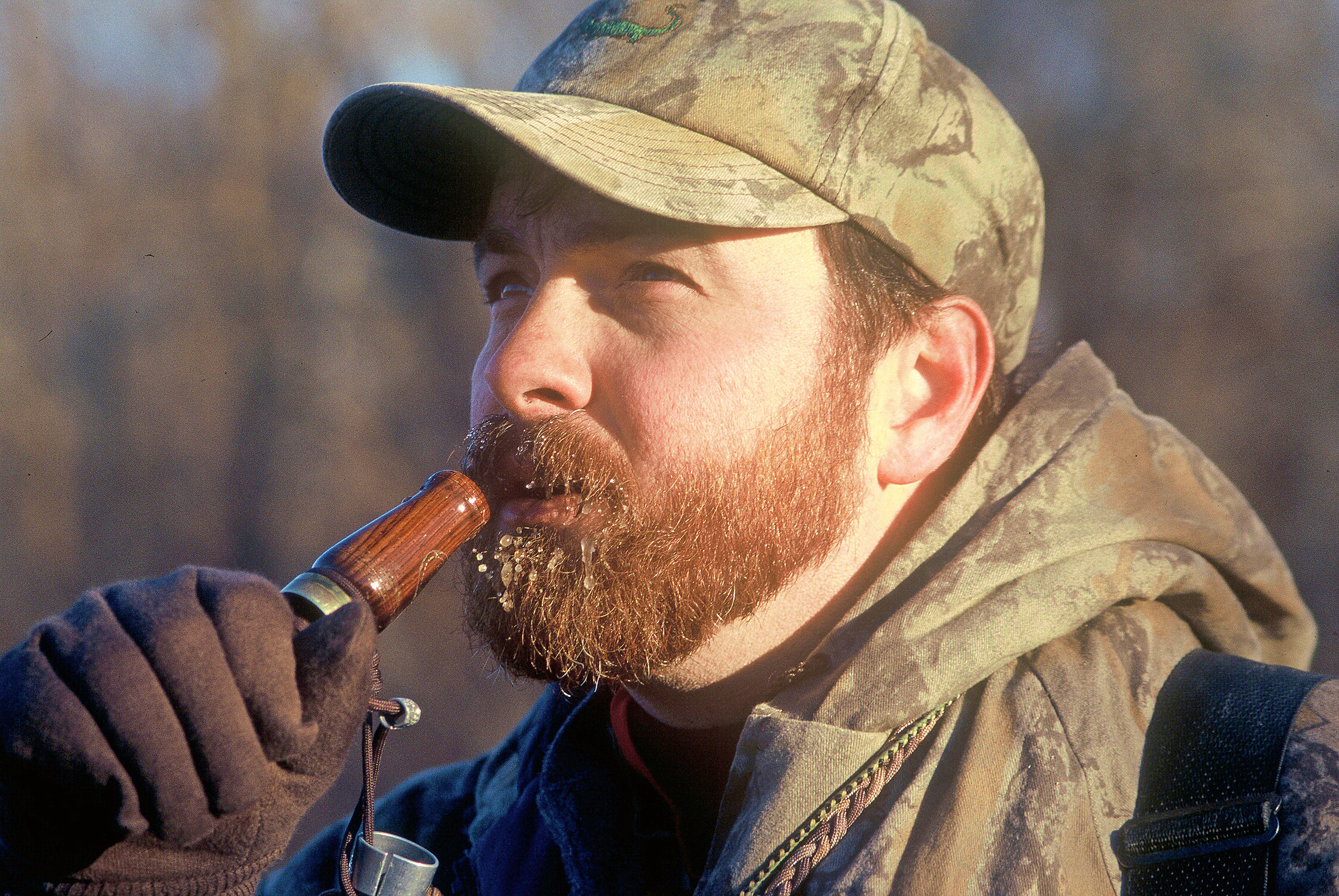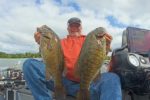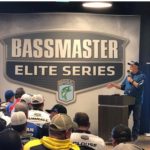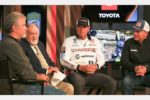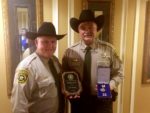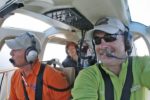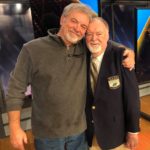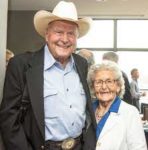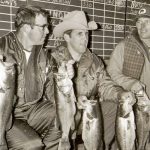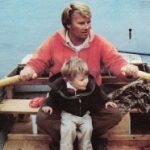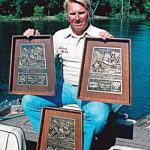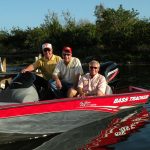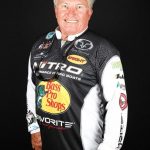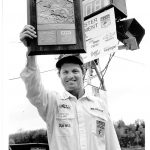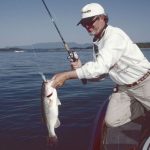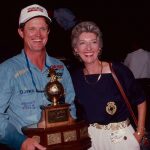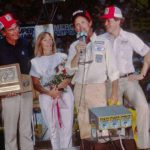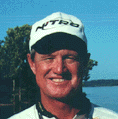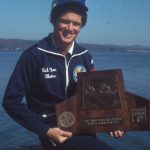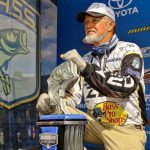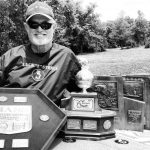Steve Bowman
Steve Bowman (1963—) Raised in a single-parent home and with no one to teach him how to fish, Steve Bowman found a way to stoke his outdoor passions. He mowed lawns to buy a Zebco 33, which he somehow attached to a car radio antenna, and went to work figuring out how to catch whatever swam in the Fourche Creek bottoms near his home in southwest Little Rock, Arkansas.
Those earliest days of his fishing career shaped Bowman in important ways. The resourcefulness he developed enabled him to pioneer digital media coverage of bass fishing, and his childhood passion for fishing inspired him to help develop new opportunities for youngsters to follow in his footsteps.
As outdoor editor of the Arkansas Democrat and (later) the Democrat-Gazette, Bowman was one of the most influential outdoor journalists in the nation. His crusade blocked a plan by the U.S. Army Corps of Engineers to channelize the lower White River, a wilderness treasure of habitat for deer, waterfowl and game fish. He worked with the Corps to improve aquatic habitat along the Arkansas River. And he devised and helped launch a project to use ponds on Arkansas’ prison lands as nurseries for stocking bass in the Arkansas River.
His pet project from his days at the Democrat-Gazette was the creation — in partnership with then-Governor Mike Huckabee — of the Coleman Creek Pond fishery, a highly utilized fishing hole for urban youth.
He set the standards for newspaper coverage of competitive bass fishing, devoting enormous amounts of space and words to reporting on all levels of bass tournaments, from local weekend events to the prestigious Bassmaster Classic.
After leaving the newspaper business in 2001, Bowman was hired to launch ESPNOutdoors.com, which quickly became the most-read and most-visited outdoor sports website in the nation. Tasked to oversee tournament coverage for Bassmaster.com, Bowman dramatically changed the way Bassmaster events were covered. His ideas included color photo galleries, the “Bass Blog” with reports and videos in real time from the water, and the War Room, which served as the precursor to the groundbreaking Bassmaster LIVE programming.
In 2003 he was a key leader on the team that created College Bass Fishing, and intercollegiate fishing circuit that evolved into the Carhartt Bassmaster College Series.
He is the author or co-author of three outdoor books, including The Arkansas Duck Hunter’s Almanac, one of the most successful duck hunting books in the country, and The Series, a coffee table book on the launch of the Bassmaster Elite Series. Among his duties as content director for JM Associates in Little Rock, Bowman edited Redfish Nation Magazine and Boat US Angler magazine while also managing Bassmaster.com, the current most-visited outdoor-centric website in the world.
Over the course of his more than three decades as an outdoor journalist, Bowman also hosted a successful television show, “Water Dog” on the Outdoor Life Network, and “The Arkansas Sportsman” radio show on the Signal Network.
In addition to his work as editor and manager for tournament coverage on Bassmaster.com and manager, Angler Relations for B.A.S.S., Bowman serves on the advisory board of Vanishing Paradise, an advocacy group dedicated to stemming the loss of marshland in the Louisiana Delta. He also serves as an auxiliary sheriff’s deputy for the Pulaski County Sheriff’s Office in Arkansas.
He was inducted into the Arkansas Outdoors Hall of Fame in 2015 and the Waterfowl Hall of Fame in 2017. He has served on the board of directors of the Bass Fishing Hall of Fame since 2012.
Steve Bowman
Forrest Wood (1932 – 2020) Growing up in a small north/central Arkansas town taught Mr. Wood traits that have helped him influence millions of people during his career. Hard work, honesty, pride in workmanship and integrity.
In the mid 1960’s, before professional bass fishing began, he made his living in a couple of different ways. First, he was a very successful trout guide on the White River. So successful, he employed several anglers to help him cover the demands that he received for his services. His wife and four daughters helped by preparing lunches for his clients. Lunches that included fried chicken that became almost as famous as did the guide himself.
In addition to guiding, he also worked as a building contractor in the wintertime, when it was too cold to fish. A successful business that almost didn’t allow him time to fish when the weather warmed. As luck would have it, there were more people who wanted to fish, than to have homes built.
In 1967, when Ray Scott held his first B.A.S.S. tournament, Mr. Wood did not compete. Why? Because he didn’t know about it. However, he fished the second event, on Lewis Smith Lake in Alabama, and began an historic career.
In order to keep the good guides who worked for him in the summer, busy in the winter, he started a small boat repair business on the side. A small business that turned into one of the most well-known bass boat companies in the world.
Ranger Boats, as he would call his company, may have come from humble beginnings, but, his wife, and partner, of over fifty-years, Nina, enabled him to see what bass fishing could, and would, become one day. This vision helped Ranger grow into the largest employer in north/central Arkansas.
Mr. Wood, the Bass Anglers Sportsmen Society, with Ray Scott, laid the groundwork for professional bass fishing. One man working with the other. One company leading the drive to unite anglers around the world, while Ranger supported and sponsored B.A.S.S. in their quest.
No other, in professional bass fishing history, has been as responsible for supporting and sponsoring fishermen, and tournament trails, than has Ranger Boat Company, led by Forrest Wood.
Mr. Wood is also quite an accomplished professional angler. He competed on the B.A.S.S. circuit for many years, even qualifying for two Bassmaster Classics and he won the New York Invitational B.A.S.S. tournament on the St. Lawrence River, in june of 1979.
While most people know him as the founder of Ranger Boats, not many people realize the tremendous contributions he has made both publicly and privately.
Throughout the years, this outstanding humanitarian and philanthropist has donated millions of dollars to such organizations as: American Cancer Society; St. Jude’s Children’s Research Hospital; Epilepsy Society of America and literally hundreds of smaller, regional organizations throughout his thirty-four years in the business.
Forrest Wood
Roland Martin — When Roland Martin entered his professional B.A.S.S. tournament in 1970, his reputation had preceded him. Some expected he’d win that first event. He didn’t. He finished second. But he did win the second B.A.S.S. tournament he entered — the 1970 Lake Seminole event — and followed that with another second-place finish in the next event.
From that auspicious beginning, Martin dominated tournament competition. In 15 seasons, between 1971 and 1985, he won nine Bassmaster Angler of the Year titles — an amazing feat that has never been, and likely won’t be, equaled.
In 2005, Martin retired from Elite-level B.A.S.S. competition after 35 seasons on the trail. By that time, he had racked up 19 victories (including three in a row in 1980-81) and another 19 second-place finishes. He qualified for 25 Bassmaster Classics and, although he wasn’t able to win the championship, he finished in the Top 10 in nine Classics. In 306 B.A.S.S. tournaments, Martin finished in the money in 193, including 102 Top 10 finishes, and earned more than $1 million. Martin also competed on the FLW circuit, winning another $139,000 there and qualifying for two FLW Cup championships.
In a ESPN’s months-long campaign in 2005 to select the World’s Greatest Angler, based on fan voting, Martin was named the runner-up, just behind Rick Clunn. Apparently, Clunn’s four Classic championships trumped Martin’s nine Angler of the Year titles, at least in the minds of fishing fans.
Off the water, Martin had a profound effect on the growth of the sport. He and John Powell were the two full-time pros participating in the nationwide B.A.S.S. Seminar Tour, which jump-started membership in Ray Scott’s organization and drove national support for tournament angling.
He was hired by Darrell Lowrance in 1970 to help with research and development of early Lowrance depthfinders.
On May 4, 1971, Martin was having dinner with Forrest Wood and his family when Wood received a phone call telling him his Ranger Boats plant was on fire. Martin and Wood reached the blazing building in time to drag a file cabinet through a window just before the roof collapsed. The file cabinet contained unfilled orders for Ranger Boats and enabled Wood to stay in business.
For decades, his “Fishing With Roland Martin” TV show has entertained and educated millions of bass anglers across the country. His popular how-to book, Roland Martin’s 101 Bass-Catching Secrets, has been a staple in anglers’ libraries since its publication in 1980.
Martin is given credit for coining and defining the concept of pattern fishing in 1969, when he was creating a bass fishing map of the Santee Cooper lakes, where he guided fishermen. He explained the term in his book: “A pattern is the exact set of water conditions, such as depth, cover, structure, temperature, clarity, currents, etc., which attracts fish to that specific spot and to other similar spots all over the same body of water.”
Martin was the first professional bass fisherman to be inducted into all three fishing halls of fame: the International Game Fish Association (IGFA) Hall of Fame, the Freshwater Fishing Hall of Fame and the Bass Fishing Hall of Fame.
His legendary career almost didn’t happen. After stints as a U.S. Army officer, a schoolteacher and a fishing guide, Martin decided to try tournament fishing in 1969. He visited the weigh-in of the Eufaula National B.A.S.S. Tournament in July of that year, arriving in time to see Rip Nunnery and Gerald Blanchard weigh in daily limits of 90 pounds, 15 ounces, and 88 pounds, respectively. Upon seeing those hauls, Martin told Ray Scott, “I have no business here!” Fortunately, Scott was able to convince Martin to give it a try.
Martin, who turned 80 on March 14, 2020, is the father of Scott Martin, an outstanding bass angler in his own right who has enjoyed success on both the FLW and B.A.S.S. circuits. Martin named his son after his friend, Ray Scott.
Roland Martin
Rick Clunn (1946—) Rick Clunn’s five-decade career as a professional angler stands as a model of longevity, innovation and on-the-water success. Indeed, even two decades after his 2001 induction into the Bass Fishing Hall of Fame, Clunn continued not only competing at the sport’s highest level, but also winning on the Bassmaster Elite Series trail. While he wasn’t the first angler to win two Bassmaster Classics – that was achieved by fellow 2001 Hall of Fame inductee Bobby Murray – he was the first to win four.
Along with the Classic wins, Clunn’s other achievements are numerous and legendary. He was the first competitor to win back-to-back Classics, achieving that feat in 1976 and 1977 on Lake Guntersville and the Kissimmee Chain, respectively. He also earned the Bassmaster Angler of the Year title in 1988, and won two U.S. Open titles on Lake Mead as well as the Red Man All-American. The Classic titles alone would have made him a shoo-in for the Hall, but his 12 other B.A.S.S. wins, and three FLW Tour victories just cemented his undeniable case. He also appeared in five Forrest Wood Cups and at one point qualified for 28 consecutive Bassmaster Classics.
While the wins and titles speak for themselves, Clunn’s other major influence on the competitive angling world has been to explore and expand the “mental side” of the sport. He has examined and utilized influences and techniques from a variety of walks of life, and developed an “Anglers Quest” curriculum aimed at sharing what he’d learned. He also took advanced classes in wilderness survival to further hone his understanding of the natural world.
Clunn was born in California and subsequently called New Mexico and Missouri home, but he is best identified with Texas, where he learned to fish under the tutelage of his father Holmes Clunn, and at the side of his “brother,” fellow Bassmaster pro Randy Fite. First, he fished local and regional tournaments as a member of the Pasadena Bass Club, but the growing national bass scene tempted him and eventually he had to decide whether to leave a comfortable job working as a computer programmer for Exxon in order to chase his dreams. In 1974 he traveled to Lake Sam Rayburn, where he finished 24th in his first Bassmaster tournament, earning $275. Meanwhile, he continued to guide on Lake Conroe, and honed his skills even as his bank account dwindled. While he fished both the 1974 and 1975 Classics, he was struggling to break through financially until he won the first of his four Classic trophies in 1976.
When Clunn won his third Bassmaster Classic championship, on the Arkansas River in the summer of 1984, he blew away the field with a three-day catch of 75 pounds 9 ounces, beating his nearest competitor by over 25 pounds. As he stood on the stage to collect his trophy, flanked by future Presidents George H.W. Bush and Bill Clinton, he talked about how he was the living embodiment of the American success story: “Only in America can we follow our dream of chasing little green fish,” he said.
That wasn’t the end of the line for Clunn, not by any stretch of the imagination. Six years later he mounted a furious final-day charge using crankbaits of his own design to win Classic number four on Virginia’s James River, in the third consecutive year that B.A.S.S. visited the historic venue. Indeed, while Clunn has rightfully been known for his attention to the psychological aspects of competition, he has repeatedly been at the forefront of tackle development as well. He was influenced heavily in his square bill use by Fred Young’s original Big O crankbait, and along with other East Texans like fellow Lake Conroe guide Zell Rowland he was instrumental in the revival and popularization of the Pop-R. Those two techniques later led to the RC series of crankbaits and to the Rico topwater from Lobina Lures, respectively. He was also a pioneer of clear-water spinnerbaiting; one of his U.S. Open wins came burning a translucent-skirted lure where few others would have thought to try that.
Clunn continued to compete effectively well past the age when most of his peers either saw their skills atrophy or retired, or both. He won a Bassmaster Elite Series tournament on Florida’s St. Johns River in 2016, just a few months shy of his 70th birthday. Indicative of the immense respect he received from his competitors, many younger anglers who did not qualify for the cut days stayed around to see him hoist the trophy, and several vied to carry his weigh-in bag to the holding tanks. After the victory, he implored the crowd to “Never accept that all of your best moments are behind you.” Indeed, those words proved not only inspirational, but also prophetic. Three years later, on that same fishery, Clunn hoisted the trophy once again, this time marking his 16th B.A.S.S. win.
Rick Clunn
In 1972, feeling the need to expand his fishing knowledge, Mr. Nixon moved to Toledo Bend Reservoir, on the Louisiana/Texas border, where he honed his skills in locating and catching trophy bass.
In 1977, feeling that his skill level was proficient enough, to allow him to compete, he joined the B.A.S.S. tournament trail and thus began one of the most successful careers in tournament bass angling.
Since joining the B.A.S.S. circuit, he won two B.A.S.S. “Angler-of-the-Year” titles; 14 tournaments; qualified for 23 Bassmaster Classics and he won the 1983 Bassmasters Classic.
He has also won four B.A.S.S. Megabucks tournament and unbelievably, he won three of those events in a row.
With all of these accomplishments, the one title that will follow him, the rest of his life, is the fact that he became the first one million dollar winner, in prize money, along the Bass Anglers Sportsmen Society’s tournament trail.
In case you think this individual is nothing more than a fishing machine, think again. Along with all of his credentials in bass fishing, he’s also hosted his own television show for three years and he’s been honored by being inducted into the Arkansas Outdoor Hall of Fame and into the Freshwater Fishing Hall of Fame.
Larry Nixon
While having fished all of his life, Mr. Murray came to the national fishing public’s attention when he won his first B.A.S.S. tournament, on Lake Eufaula, This was only the beginning of a storied career for this outstanding multi-species angler.
During his life, he has won over 40 regional and national tournaments, he’s received Master Angler status in alaska, for trout and salmon, and has landed trophy saltwater species, including a 964-pound tuna.
The single accomplishment that brought his name to national attention was his winning the very first Bassmasters Classic, in 1971, on Lake Mead, NV.
As much as this victory sealed his name in the record books, he proved, by winning the 1978 Bassmasters Classic, on Ross Barnett Reservoir, that he would attain legendary status.
In 1989 he was honored with an induction into the National Sport Fishing Hall of Fame; and in 1994 was elected to the Arkansas Outdoor Hall of Fame.
When he was listed in the Living Legends of American Sport Fishing, author Larry Columbo said, “this angler is one of the true superstars of American sport fishing. His excellent reputation, along with his proven skills, put him among the elite class of anglers.”
